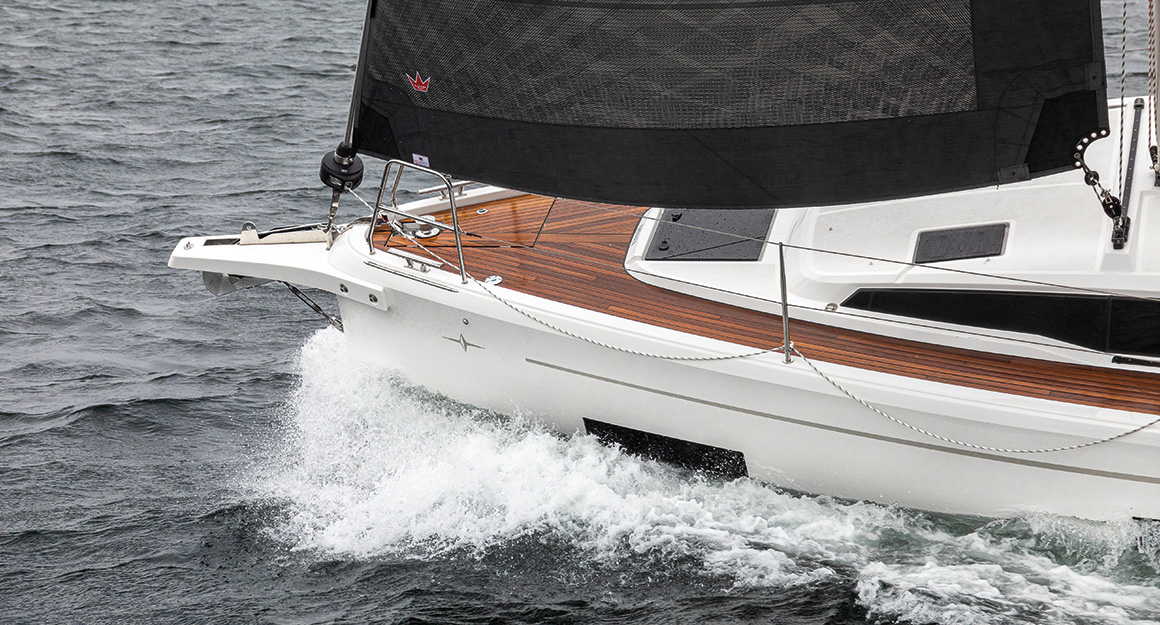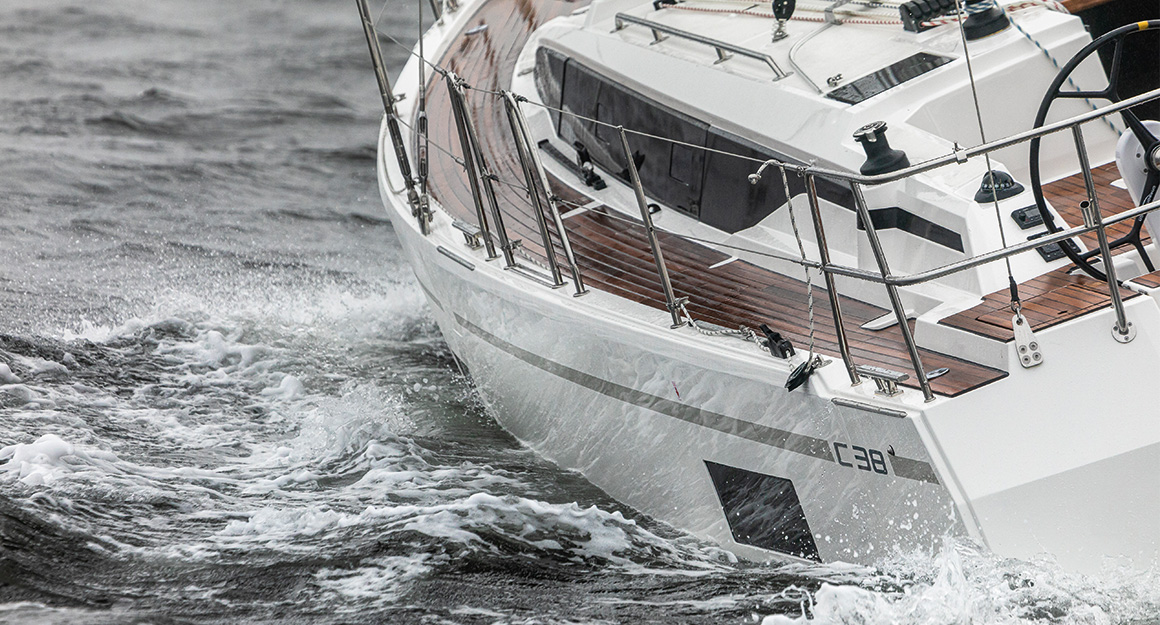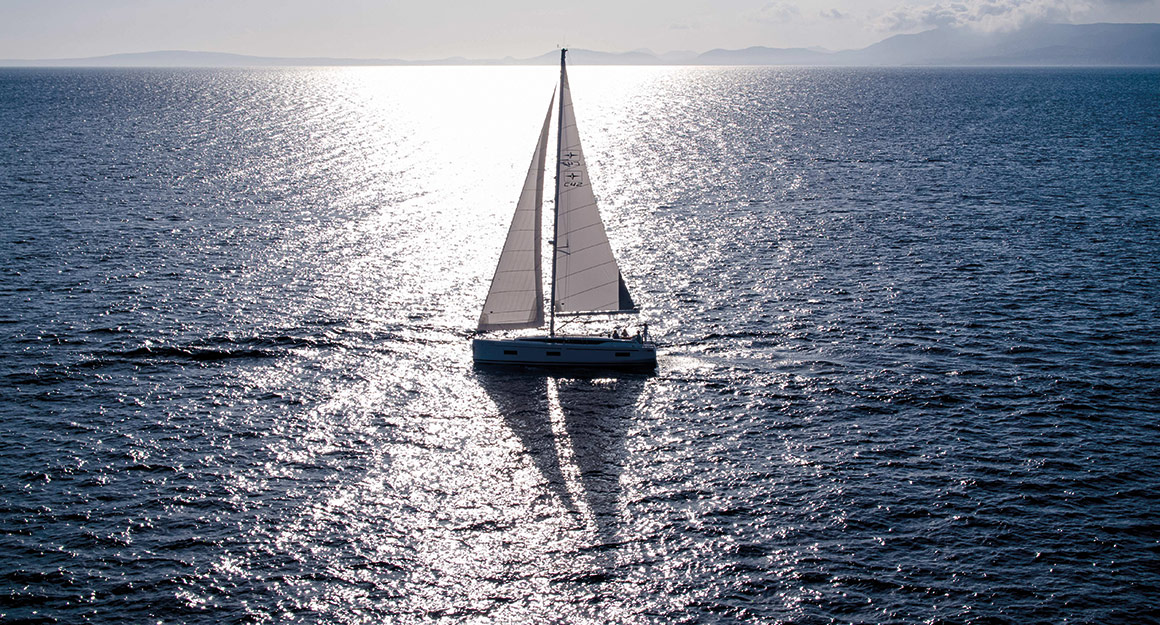Day and night: Sailing around the clock. What's important when it's getting dark?
It's fresh, fortunately it's not raining and our BAVARIA C38 sails very nice and fast upwind. But it's pitch dark and the clock shows just before midnight. I am gently shaken out of my sleep: "Arise, arise, wake up, you're on watch." This is followed by a few minutes of self-conviction to get out of the warm bunk. I briefly ask myself why we are going to make the effort of sailing at night. But as soon as I step out to the helm, the answer is obvious: because it’s one of the most impressive moments when you experience the sea in the moonlight, under the magnificent starry sky and steering the boat through the night.
Besides that, you shouldn’t forget that as a skipper you have a particularly great responsibility for the crew and the boat, especially at night. There are therefore a few things to bear in mind.
Like a large factory working in shifts, on board 24 hours a day safety and miles are produced. You have to keep an eye out for other boats to avoid collisions, navigate with charts and plotters and always stay alert. Keep an eye on the weather and its development so that the yacht is always sailed or driven quickly and safely. Because of that you need a shift system on board that organises the crew. At sea, these shifts are called watches.

Some watch systems at a glance
The right watch system should be carefully considered and discussed with the crew before the trip. The optimum distribution depends on the size of the yacht, the crew size and their experience. The following watch systems are the most common.
Three-watch system: It originates from commercial shipping. Four hours on watch are followed by eight hours “off duty”. In this classic system, the first officer usually takes the first watch, the second officer the second and the third officer the third. The lower ranks usually have to take over the unloved “dog watch” between midnight and four o'clock in the morning. This is a watch system that can also work well on sailing boats. Provided that, in addition to the skipper, there are at least two watch leaders on board who are equally experienced.
Two-watch system: It is tailored to small commercial vessels that only have a captain and an officer. Six hours on watch are followed by six hours off watch. If the crew of a yacht is made up of owls and larks, i.e. people who tend to be night people (owls) and early risers (larks) but who get tired quickly in the evening, this system is perfect because it takes into account the biorhythms of the individual crew members.
On long-distance races, such as the ARC across the Atlantic, there are usually only two watches. Called port and starboard watch. The watch changes every four hours. The navigator and skipper are off watch and each watch has its own watch captain. But you can't expect to get much sleep on a regatta yacht, because it's not just about safety, but also about always sailing the yacht at the limit around the clock.
What sleep deprivation means for the body
It is necessary to get enough sleep on board, because just 24 hours of sleep deprivation causes symptoms in the body similar to a per mille of alcohol in the blood. Speech, vision, memory and perception decrease rapidly with every hour of sleep deprivation. On the other hand, the willingness to take risks and disorientation increase significantly. A dangerous factor on board and a strain on the body. Giving the body the necessary breaks and planning appropriate sleep phases is therefore not just a question of comfort - it is actually mandatory for the safety of the ship's command.

Rules for the crew
Clear rules should be laid down within the crew before setting the sails. For example, a lifejacket should be worn at night and additionally fastened to the yacht with a belt or ring. If the number of people allows it, two people should always be on board, rested and awake. It is also advisable to agree on a ban on alcohol.
Some crews even operate according to the following agreement: if someone from the crew realises that they are getting tired during the watch, they have the right to be relieved immediately by another crew member from the free watch, without discussion.
"Discipline on watch, yes, but not at any price. If a crew member on board gets tired during their watch, the person is requested to wake me up, so I can relieve them. I convey the awareness that this is fine for me. I always emphasise to my crew that I can be woken up at any time. And vice versa, if I get too tired, I let myself relieved before I run the risk of jeopardising the yacht by making misjudgements. That must be possible in a good crew without trouble," reports an Austrian skipper who has already crossed the Atlantic several times.

Our Checklist for night sailing
- Sleep as well as possible during the day
- Completely check the deck before dawn -> remove any tripping hazards
- Tension the ropes
- Close the sea valves
- Check life jackets and fit them with lights for safety
- Have a hot meal before the first watch
- Secure everything below deck, make bunks seaworthy
- Check instruments such as chart plotters, including settings
What you should have to hand
- Warm clothing, gloves if necessary
- Headlamp
- Thermos flask with hot tea
- Searchlight
- Binoculars
- Radio
- compass
- Lifejacket
Back on our BAVARIA C38 on its course through the night. I'm now sitting in the cockpit with a warm jacket and a hot cup of tea in my hand. With a short briefing from the relieved watch, who are now looking forward to their bunks, I was informed about the course and weather. Everything around the ship is breathtaking. Phosphorescent algae make the wake glow, the stars at sea shine a thousand times brighter than on land and it is the best time on board that you will never forget.
We look forward to receiving your feedback, suggestions or requests at marketing@bavariayachts.com